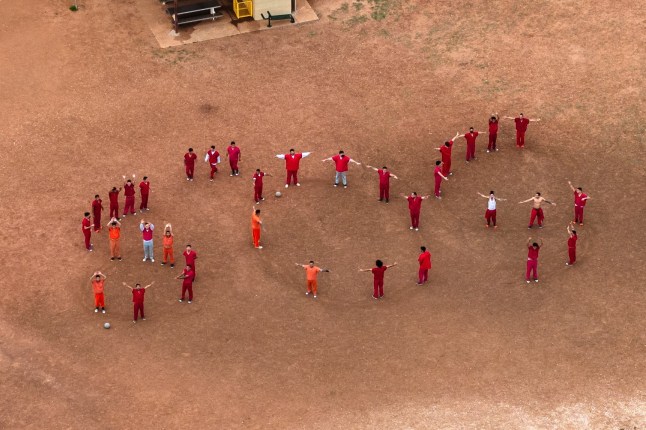
People detained at an immigration centre in the US formed a human SOS in a cry for help.
A drone flying above the Anson, Texas, saw around 30 men forming the message before they’re shipped to an El Salvador prison so brutal it has sparked unverified conspiracy theories of death camps and torture.
Inmates get no visits, no daylight, and little prospect of release, once locked in 70-person cells at the maximum security CECOT prison, branded ‘Guantanámo on steroids’.
Built to house alleged members and associates of Salvadoran gangs, it has now become central to Donald Trump’s immigration crackdown.
More than 200 people have already been deported there from the US, including Kilmar Abrego Garcia, a Salvadoran national granted protected status in the US in 2019.
To view this video please enable JavaScript, and consider upgrading to a web
browser that
supports HTML5
video
He was seized by Immigration and Customs Enforcement (ICE) agents and accused of playing a ‘prominent role in MS-13’ after picking up his son in Maryland.
The accusation wasn’t true, and the US has since admitted it illegally deported him.
But the Trump administration has said it can’t get him back, and Salvadoran President Nayib Bukele won’t return him.
‘Oopsie… Too late’, Bukele wrote on X, formerly Twitter.
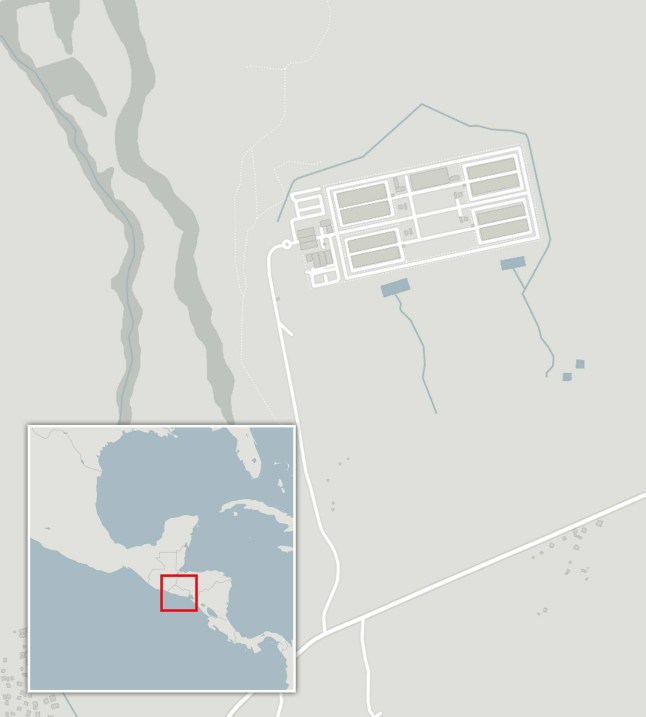
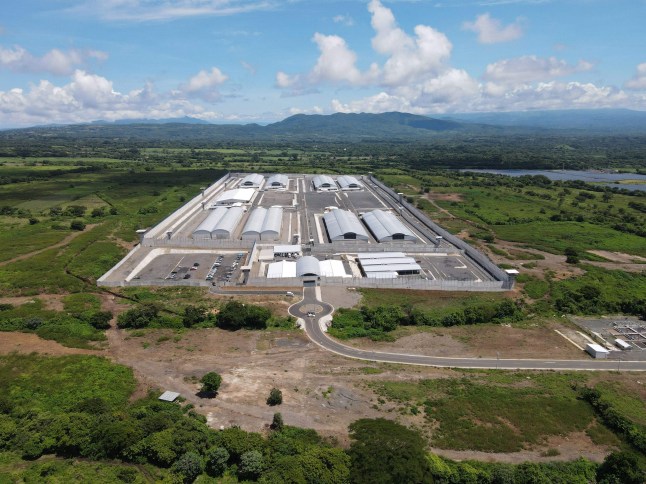
That’s a fate feared by 31 men who assembled themselves in the shape of S.O.S. in the yard of Bluebonnet detention centre in Texas on Monday. It was captured by a drone flown by Reuters news agency.
Dozens of Venezuelan detainees there were this month accused of being members of the Tren de Aragua gang, which Trump has claimed is carrying out ‘irregular warfare’ and ‘hostile actions’ in the US.
Seven of their families have denied these claims of gang membership.
Among them is Jeferson Escalona, 19, who was a police officer in Venezuela. He believes US authorities saw pictures of him making hand signs common in Venezuela when they seized his phone.
It wouldn’t be the first time US officials have seen gang signs where there aren’t any. British man Pete Belton, 44, was shocked to find a picture of his clockface tattoo, showing the time his daughter was born, in a document used to identify gang members.
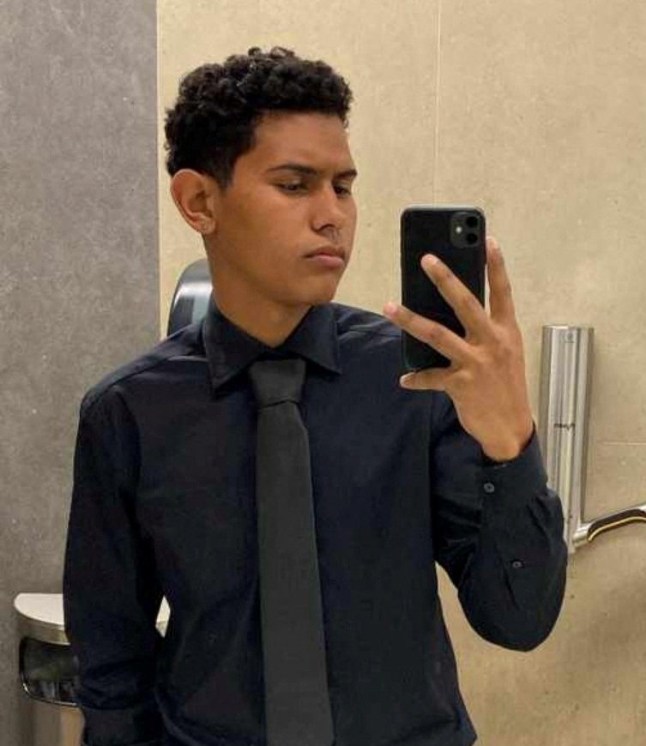
‘I fear for my life here’, said Escalona, who was denied his request to voluntarily return to Venezuela.
‘They’re making false accusations about me. I don’t belong to any gang.’
Trump has revived a 1798 law – last used to detain 120,000 Japanese people without trial during World War Two – to speed up deportations of alleged gang members.
Hundreds of thousands of Venezuelans have fled to the US in recent years, escaping economic collapse and an authoritarian crackdown by President Nicolas Maduro.
But Trump has branded this an ‘invasion’. His use of the Alien Enemies Act allows him to bypass immigration courts, despite some of the detainees having dates set.
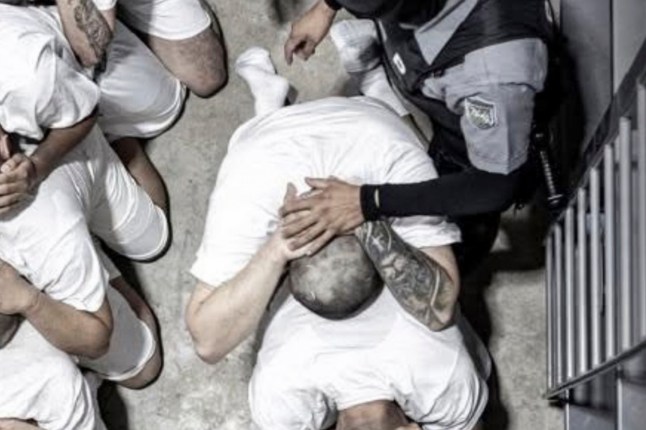
Diover Millan, a 24-year-old construction worker with no criminal record, has an asylum hearing on May 1.
‘If he gets removed under the Alien Enemies Act, then that court date doesn’t exist, he’ll never have that court date’, a US official explained in a recording heard by Reuters earlier last week.
This lack of opportunity to appeal their case, or have the accusations tested, is alarming for those fearing deportation to CECOT.
In the recording, one said: ‘If I don’t have a criminal record in the three countries in which I have lived in, how are they going to send me to El Salvador?’
The Supreme Court has temporarily blocked their deportations.
Get in touch with our news team by emailing us at webnews@metro.co.uk.
For more stories like this, check our news page.